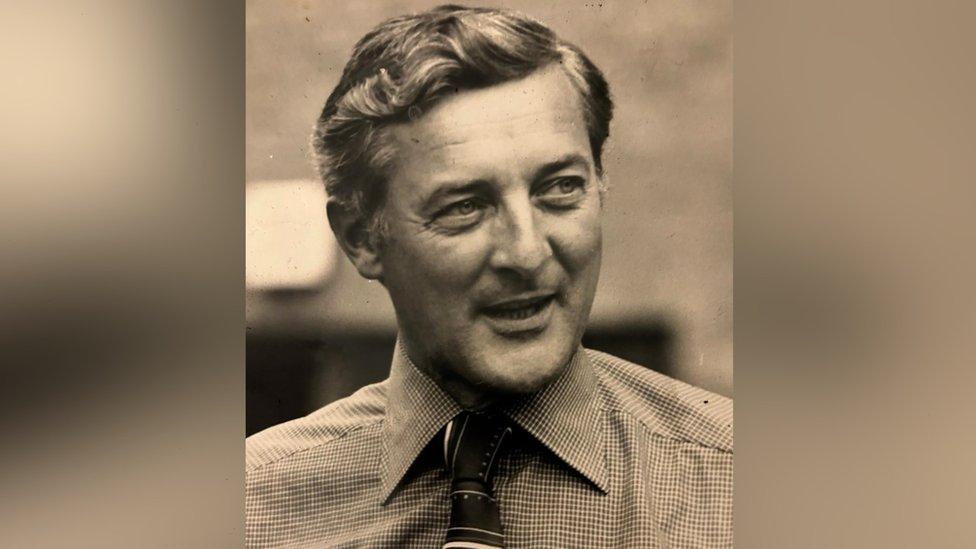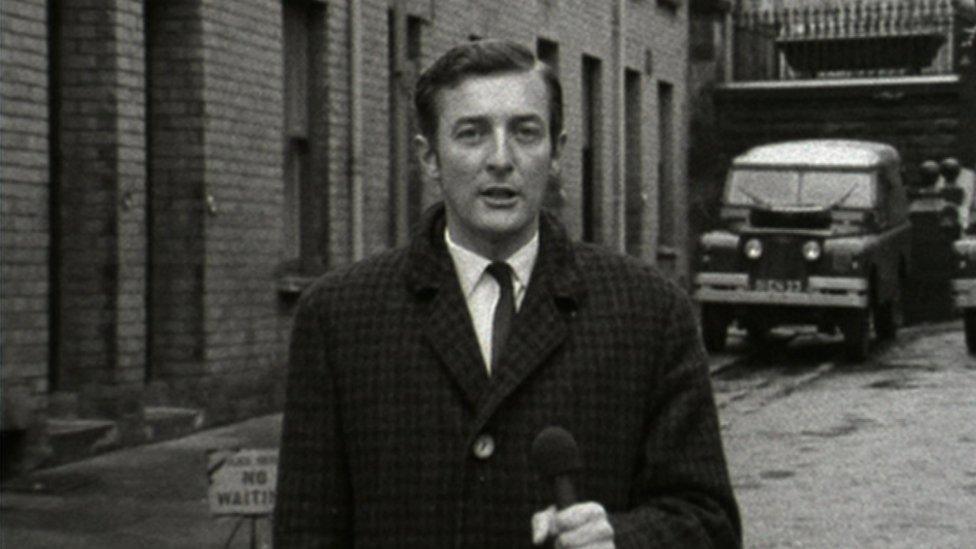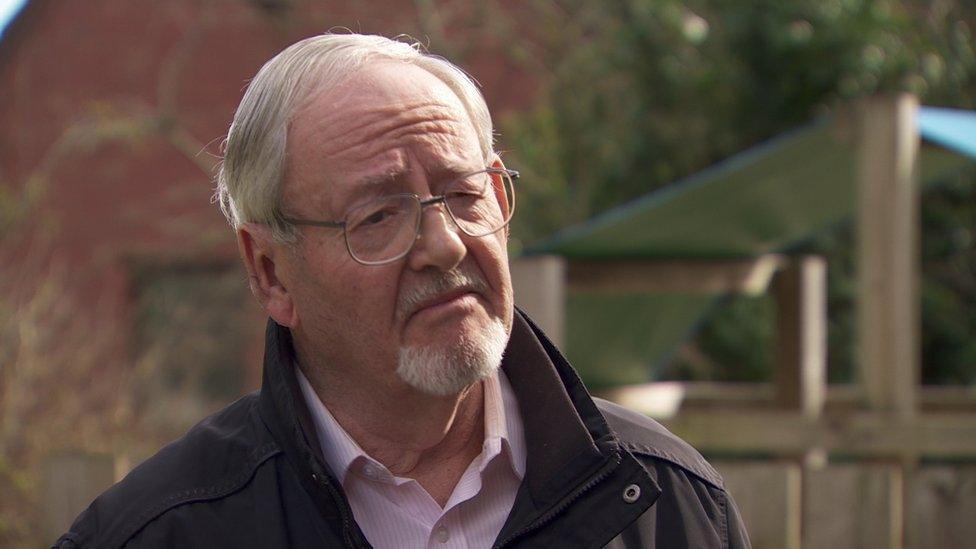David Capper: Former BBC journalist dies aged 91
- Published

Former BBC Ireland Correspondent David Capper has died aged 91.
He was a familiar presence on TV and radio during some of the darkest days of the Troubles.
Reporting for BBC Northern Ireland's Scene Around Six and as the national radio correspondent he covered some of the worst atrocities including Bloody Sunday and Bloody Friday.
Born in Belfast, his journalistic career began at the Newtownards Chronicle.
It was with the Chronicle where he had his first encounter with a major news story, covering the sinking of the Princess Victoria in 1953.
He spent a few years working in Vancouver, returning to Northern Ireland to edit a local paper, then joining the reporting staff of the Belfast Telegraph and on to the BBC.
Mr Capper joined the BBC team in Buenos Aires during the Falklands War.
After 26 years, he left the BBC shortly after reporting on the Enniskillen bomb in 1987, but continued to work in media advising developing radio stations abroad.
His family said he eventually settled in Donaghadee where he had spent his childhood summers.
They said apart from travel, his passions included music and narrow gauge steam railways.
He had three children, Chris, Diarmit and Samantha, and nine grandchildren.

David Capper on BBC's Scene Around Six
Adam Smyth, director of BBC NI, paid tribute to Mr Capper, describing him as a "journalistic icon".
"David was the epitome of impartial and courageous reporting in the public interest. He was an eyewitness to some of the most harrowing events of The Troubles, including Bloody Sunday, and could be fully relied upon to provide a trusted account of what he saw," he said.
"Many senior figures in local journalism also have David to thank for passing on his considerable skillset to junior reporters starting out in the industry.
"Our deepest condolences go to David's family circle."

Norman Stockton said Capper was a "born broadcaster"
Broadcaster Norman Stockton, said he was a man of "unfailing cheerfulness and enthusiasm - he was a born broadcaster".
"He was a real pioneer," he said.
Séamus Dooley from the National Union of Journalists (NUJ) said Mr Capper was "universally acknowledged as a broadcaster of the upmost integrity, professionalism and impartiality".
"He represented all that is best in public service broadcasting and is remembered for his collegiality and sense of decency," Mr Dooley added.